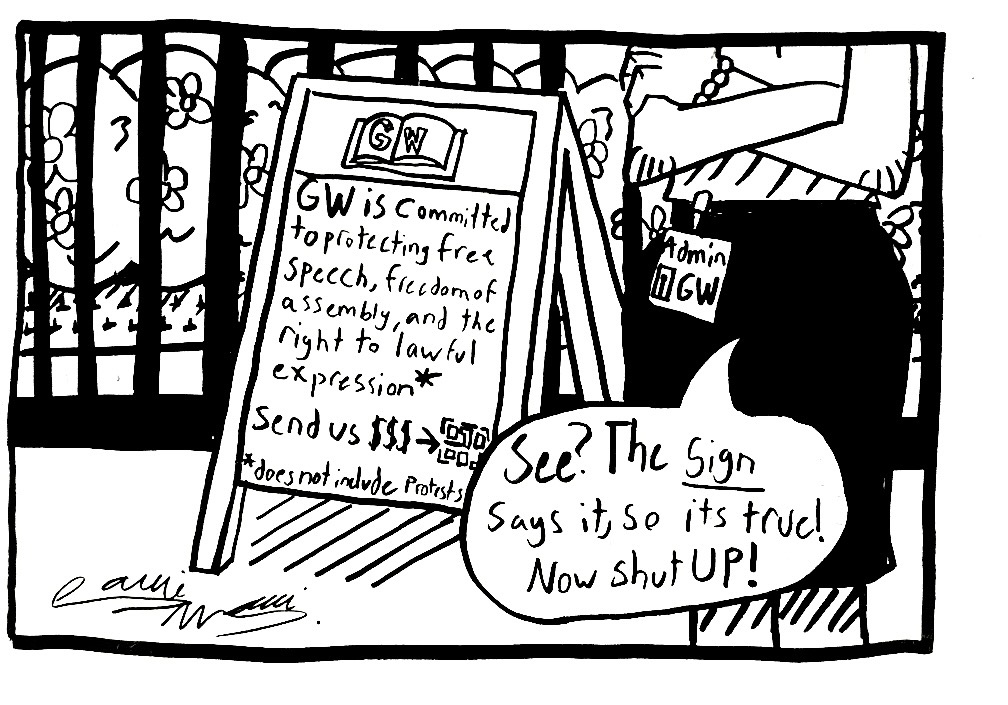Freshman Day of Service has been a hallmark of University President Steven Knapp’s tenure, reflecting the goal to make community service an integral component of GW’s culture, and pushing students to engage with the city.
But the service day has also been criticized for being nothing more than a public relations gimmick – a disorganized, self-serving photo opportunity for the University.
Senior Rachel Krausman has been involved with the service day since it was put in place her freshman year and moved on to organize the event as an upperclassman for the past three years. And she has handed administrators a detailed proposal with worthwhile changes to make the event more productive, including extending the amount of time students spend volunteering.
It is encouraging that the University is taking student input into consideration and acknowledging the flaws of Freshman Day of Service.
But GW should not stop there. It should continue to look to other students for feedback as well.
Freshman Day of Service is relatively new. It began four years ago as a way to introduce new Colonials to community service in D.C. But the day shouldn’t focus only on freshmen.
If GW wants to become a school that is known for its commitment to service, it has to involve more upperclassmen. Instead of tailoring a day just to freshmen, the University would benefit from broadening the scope of Freshman Day of Service to attract and solicit ideas from upperclassmen.
One criticism of the day of service is that students spend too much time doing work like picking weeds or painting fences, which lack substance and have little impact. Students would get far more out of community service if they worked directly with people – perhaps elementary school children, the elderly or the homeless.
Freshmen should also have the opportunity to choose the kind of service they do. If they ranked their service placement sites in order of preference, they would not only feel more invested in their work, but they would also be more likely to continue serving the community in the future. If the University can spark enthusiasm and passion within those participants from the start, students are more likely to continue to take part in service opportunities throughout college.
Krausman also suggested that Freshman Day of Service events should take place at venues closer to campus. From a financial standpoint, that would cut down on the cost of busing students to locations across the city.
But if having students volunteer closer to campus cuts costs, then that unused money can be repurposed and donated to a local charity or shelter. There are many organizations located mere blocks from campus that are earnestly seeking volunteers.
Restricting the day to service at sites closer to campus and encouraging upperclassmen to get involved are ways to maximize the impact Colonials have on the community.




